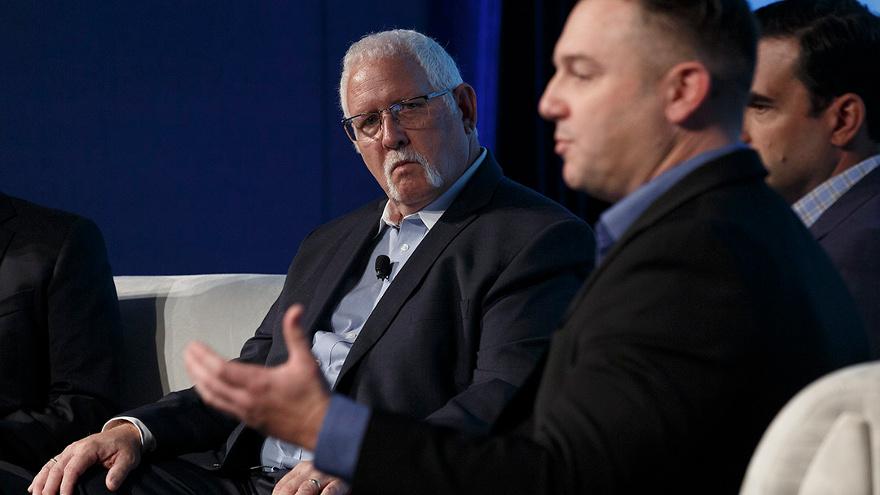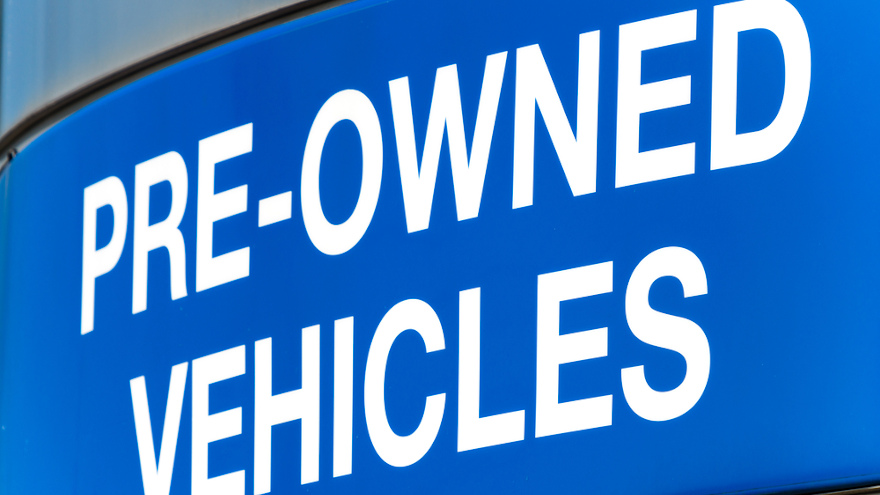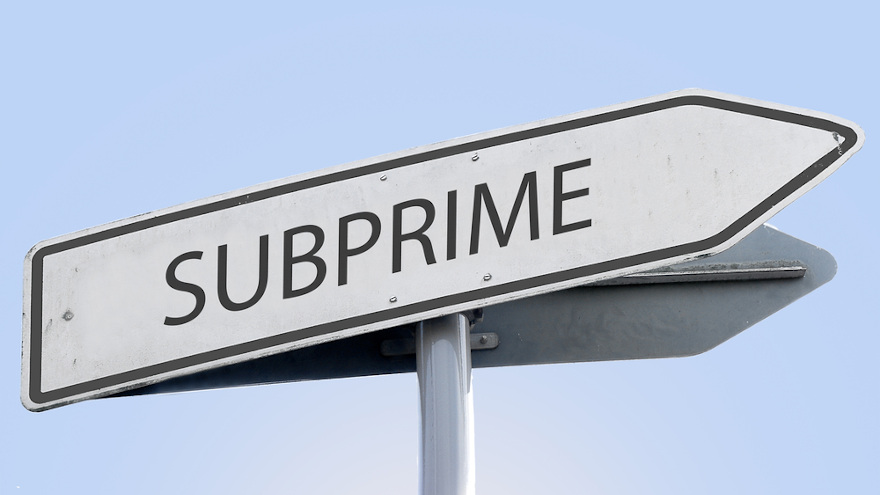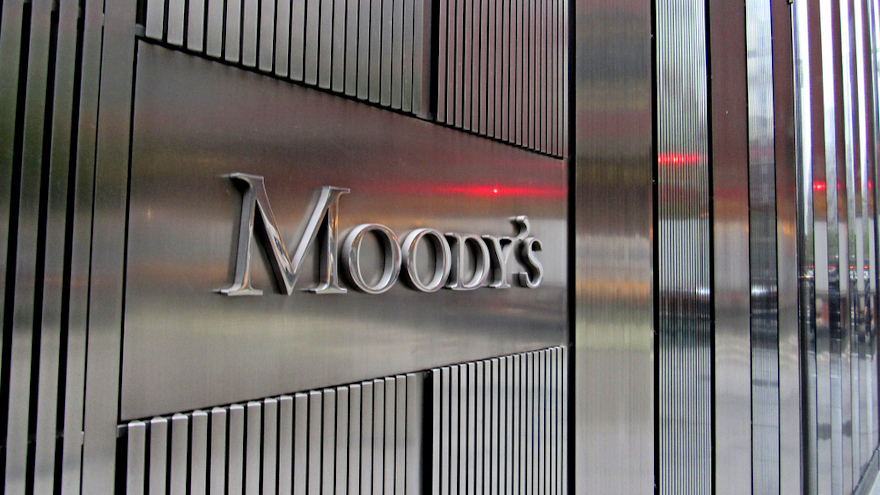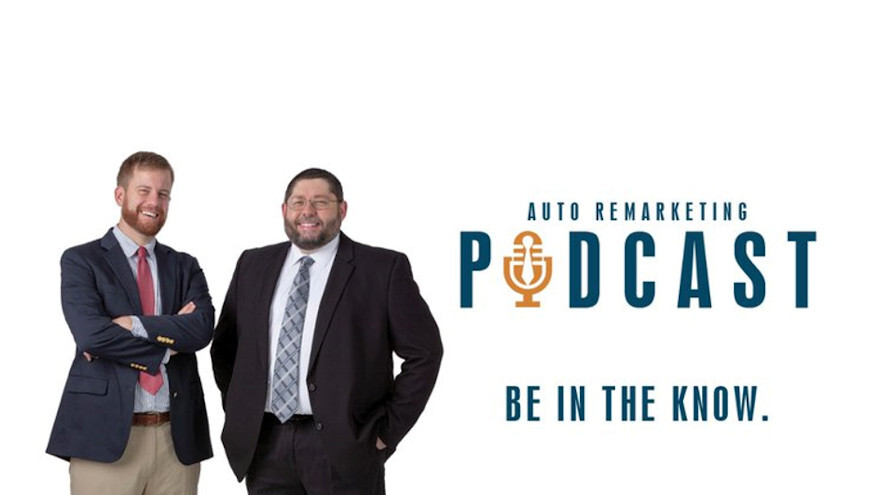American Recovery Association president Dave Kennedy didn’t mince words to open a letter he delivered to the industry last week.
“We are failing — all of us,” Kennedy wrote.
Kennedy used the direct language to introduce the latest endeavor by ARA, which has been assessing, researching and creating content that the association said will make “a clear and present argument for radical change” within the pricing structures of the repossession industry to be beneficial to all parties.
ARA emphasized that repossession and recovery are essential to the entirety of the auto-finance business, which is why the association opened a series dubbed, “The Cost of COVID-19 on the Industry.”
Kennedy continued in the project introduction, “Given the current state of economic affairs and the added pressure of COVID-19, our already struggling business model has become even more difficult to navigate.
“It seems that every day, there is a new challenge and we see many good repossession companies closing their doors, unable to keep up with the ever-increasing cost of doing business. The repercussions have shockwaves throughout the industry — lenders and forwarders alike are struggling to find quality adjusters who can produce results and maintain compliance,” he said.
“It’s easy to wax poetic about the ‘good old days’ — when repossessions were simple, when compliance was minimal, when consumer complaints rarely escalated to litigation,” Kennedy went on to say. “It’s easy to hope that sweeping change will happen somewhere, sometime, eventually. It’s easy to wait for the decision makers — whoever they may be — to regulate, litigate and compensate their way to a more viable and sustainable revenue model.
“No one is coming. It’s up to us,” he added.
ARA offered a host of suggestions for repossession agents, finance companies and forwarders. The association reiterated that each of those industry segments must work together to create sweeping changes.
“Now is the time for action,” Kennedy wrote. “Now is the time to come together to ensure the survival of our industry. Now is the time to galvanize the industry and reassess our failing business model.
“Now is the time to rethink and rectify a revenue model, which will allow for repossession agencies to operate in a viable and sustainable manner. It's hard work, yes, but to slip back into complacency will be the death of our industry.”
The opening segment of this ARA project can be found on this website.
Turner Acceptance is bringing on some technology reinforcement to help the subprime auto finance company navigate its way through underwriting during the coronavirus pandemic.
This week, Turner Acceptance finalized a strategic partnership with TurboPass to leverage its universal income validation solution and find more details about consumers’ ability to pay on that retail installment contract.
The companies highlighted that dealers can now send a simple text message to a consumer at the point of sale or during their shopping process to validate “ability” that’s ready in seconds, saving valuable time in the vehicle buying and closing process.
This process can enable finance companies to have funding dashboard access to validate dealer-initiated reports eliminating the need to send personal identification documents in the funding package.
“Ensuring affordability is something we take very seriously at Turner Acceptance,” chief executive officer Jonathon Levin said in a news release. “We want to help our customers succeed and after testing most of the major VOI/VOE/VOR providers in the industry, we’ve found that TurboPass reports are the best way to do help our customers get into the right car at the right terms”.
Turner chief originations and marketing officer Andres Huertas added, “Because we feel that the TurboPass solution is in the best interest of our dealers, our customers and for our industry, we are not only including the requirement of TurboPass on our call-backs, but were also actively working to sign our dealers up on the solution.”
TurboPass co-founder and chief operating officer Ken Jarman elaborated about working with finance companies like Turner Acceptance, especially now as the U.S. economy has been impacted dramatically by COVID-19.
“The TurboPass Report is something that has been sorely needed for dealers for a long time. Just as dealers pull credit on almost every customer to help customize the right offering for each customer, the same can and should be done as it relates to income and employment,” Jarman said.
“In light of COVID-19, verifying income and employment is more difficult than ever,” Jarman went on to say. “Having Turner as a committed partner is exciting for our company and for the industry in general.”
For more details about the companies, go to www.turneracceptance.com or www.turbopassreport.com.
The coronavirus pandemic is accelerating consumers’ recognition of more favorable financing terms in connection with used vehicles among other benefits of acquiring a pre-owned model instead of a new car.
That’s among the latest findings shared on Tuesday by Edmunds, which asserted that current unique market conditions due to COVID-19 could be driving more consumers out of the new market and into used vehicles.
Edmunds analysts reported that June used-vehicle finance figures and Edmunds website data indicate shifts in shopping behavior that are not usual for the used-vehicle market and could point to more typical new car shoppers entering the fray:
• Reduced interest rates. Edmunds data shows that interest rates for used vehicles dropped to the lowest level since January 2018 with the average annual percentage rate (APR) falling to 7.8% in June, compared to 8.3% in May and 8.6% a year ago.
• Bigger down payments. The average used down payment climbed to $3,167 in June, surpassing $3,000 for the first time that Edmunds has on record dating back to 2007.
• Less negative equity. Edmunds data reveals that 26.3% of used vehicle sales with a trade-in had negative equity in June, the lowest level so far in 2020.
• Increased cross-shopping of used vehicles. According to Edmunds website data, more new shoppers are cross-shopping used vehicles than before COVID-19. Edmunds also said 29% of new-vehicle shoppers between mid-May and mid-June also considered used, compared to 24% between mid-January and early March.
“More consumers are looking for value in their next car purchase due to the economic challenges of the coronavirus pandemic, so the more favorable loan conditions we’re seeing are likely a direct result of more consumers with good credit shifting into the used market,” Edmunds executive director of insights Jessica Caldwell said in a news release.
“Thanks to a shortage of new vehicle inventory, more automakers and dealers have leaned into promoting attractive certified pre-owned programs, which might be driving more typical new car shoppers into the used market,” Caldwell continued.
Edmunds data also indicated that the share of used vehicle purchases with a vehicle trade-in dropped in June to the lowest level since February 2009, which experts said could also be indicative of another trend emerging due to COVID-19: more first-time buyers.
“The fact that there are fewer people trading in a vehicle when making a car purchase could indicate that there are consumers entering the market for the first time — possibly due to concerns surrounding public transportation — which is an exciting prospect for the industry,” Caldwell said.
June Used-Car Finance Data (Averages)
|
|
June 2020
|
June 2019
|
June 2015
|
|
Term
|
67.3
|
67.4
|
66.3
|
|
Monthly Payment
|
$405
|
$411
|
$378
|
|
Amount Financed
|
$22,337
|
$22,181
|
$20,706
|
|
APR
|
7.8%
|
8.6%
|
7.7%
|
|
Down Payment
|
$3,167
|
$2,665
|
$2,217
|
Source: Edmunds
While the cost of new vehicles continues to climb, the newest data from Edmunds indicated finance companies are finding ways to mitigate their risk when booking new-model paper.
On Wednesday, Edmunds experts reported the average down payment for new vehicles financed in June rose to the highest amount seen all year, increasing to $4,451.
Furthermore, Edmunds determined the average contract term for the June new-car paper dipped below 70 months for the first time since February.
Edmunds also indicated interest rates for new vehicles increased slightly in June. The annual percentage rate (APR) on new financed vehicles averaged 4.2% in June, compared to 4% in May and 4.3% in April.
Despite this slight month-over-month increase, analysts noted that this is still the second-lowest average interest rate that Edmunds has on record since September 2015.
Edmunds data also shows that zero-percent finance offers took a dip for the second month in a row in June but remained at near-record levels. These deals constituted 19.4% of all new financed purchases in June, compared to 24% during the previous month.
“Although car shoppers still got to take advantage of favorable financing conditions in June, all signs point to automakers pulling back on the more generous incentives introduced at the outset of the pandemic,” Edmunds executive director of insights Jessica Caldwell said in a news release.
“As states across the country have reopened, consumers have resumed more of their regular purchasing habits, and as inventory levels decline, automakers understandably are less prone to spend big to spur demand,” Caldwell continued.
“It might not seem like a positive for car shoppers, but it’s probably for the best that loan terms are returning a bit closer to Earth after skyrocketing for months,” Caldwell went on to say. “At zero-percent financing, a six- or seven-year loan could make sense for a responsible buyer, but for many Americans, relying on longer loan terms to justify their bigger vehicle purchases could put them at greater risk for negative equity in the future.”
That negative equity stems in part to how much new vehicles costs nowadays.
ALG, a subsidiary of TrueCar, projected June average transaction prices (ATP) for new vehicles to be up 3.2% or $1,117 from a year ago but down 0.2% or $88 from May.
“Average transactions prices continue to tick up year-over-year, but we are seeing signs of decline and expect a small dip in average transaction price month-over-month as automakers slowly pull back from zero percentage financing over 84 months that helped spur demand for higher price models and trim levels,” ALG chief industry analyst Eric Lyman said in a news release.
“While incentives are still up year-over-year, the aggressive incentives that came out fast and furiously in April and May to help alleviate sales pains are beginning to soften due to low inventory and assembly plants that are still not back to full production,” Lyman continued.
“Retail sales over the Fourth of July holiday weekend will be the next big test of industry’s strength and resiliency and will be a litmus test for automakers in deciding to further pull back on incentives,” he added.
Meanwhile, the valuation analysts at Kelley Blue Book reported the estimated average transaction price for a light vehicle in the United States was $38,530 in June. They computed new-vehicle prices increased $1,141 (up 3.1%) from the same month last year, while rising $160 (up 0.4%) compared to last month.
“Though Q2 sales are expected to be down 35% due to COVID-19 and the ensuing economic recession, transaction prices over this time strengthened more than normal,” Kelley Blue Book analyst Tim Fleming said in a news release.
“The industry average climbed 3% — helped by increases in non-luxury cars —and light truck sales mix at around 75% of the total market,” Fleming continued. “Today’s new-car buyers are likely more financially secure despite the economic uncertainty, and they are purchasing a disproportionate number of trucks and SUVs. However, buyers are still shying away from luxury brands, which saw prices dip 1.5%.”
New-Car Finance Data (Averages)
|
|
June 2020
|
June 2019
|
June 2015
|
|
Term
|
69.9
|
69.7
|
67.9
|
|
Monthly Payment
|
$568
|
$562
|
$492
|
|
Amount Financed
|
$34,911
|
$32,824
|
$29,008
|
|
APR
|
4.2%
|
6.0%
|
4.6%
|
|
Down Payment
|
$4,451
|
$4,135
|
$3,308
|
Source: Edmunds
While the coronavirus pandemic has created plenty of headaches for dealerships, the ramifications appear to be creating at least one opportunity for store F&I departments.
Sales of vehicle service contracts post-sale first spiked in March and then again in April and May as dealers slashed marketing budgets and shifted focus to existing customers, according to new data from Automotive Product Consultants (APC).
APC executives said this week that sales of its second-chance service contracts improved by 64% in March, the highest year-over-year gain since the current agent-dealer program was launched in 2006. Strong sales continued with year-over-year increases of 39% in April and 31% in May.
“The moment the pandemic hit, we saw response rates and close rates go up as customers were sitting at home, reading and responding to marketing from their dealers,” APC president Kyle McEvoy said in a news release.
“In addition, we’ve seen F&I agents — many of whom had their windshield time taken away — now urging dealers to adopt the program to pick up incremental post-sale revenue at a time when it’s sorely needed,” McEvoy continued.
Dan Haugen, chief sales officer of Portfolio, a longtime APC partner, said his company reminded its agent network about the program in a mid-April bulletin.
“The response was highly encouraging, and we are looking forward to seeing the long-term results,” Haugen said. “The more car buyers we can protect, the better, and the current environment demands ingenuity.”
RISC said it understands the COVID-19 pandemic continues to keep the collateral recovery industry from getting back to any kind of normalcy.
In light of the challenges that repossession agencies are going through, RISC recently decided to extend its fee waiver for RISC Pro Membership, including CARS Certification Training for the fourth straight month.
The company said in a news release that billing will be on hold until Aug. 1. RISC believes the fee waiver will help current members save on monthly expenses as well as allow new members to sign-up to take advantage of free education.
“We have seen a 40% increase in membership over the last three months. This is a great sign that we are helping agencies during this hard time get the value of membership without any expense,” RISC chief executive officer Stamatis Ferarolis said.
“We will continue to monitor how markets are doing and consider additional waivers if the financial strain continues,” Ferarolis added.
RISC Pro is a membership for agents that have set their company’s compliance status as a high priority for managing their business.
In addition, RISC Pro gives its members unlimited access to all of RISC’s CARS training programs, Driver Safety Training, business templates, worksheets and more.
Learn more about RISC Pro at https://www.riscus.com/AgentServices/riscpromembership.
Even though the coronavirus pandemic appears to pack an economic wallop, new research is showing that the subprime auto-finance market can absorb a punch or two.
According to the second annual market study released today by Davis & Gilbert’s Credit Chronometer, market participants are expecting subprime auto financing performance to deteriorate, and many predict COVID-19 will have a long-term impact on the sector. However, the study indicated participants also show signs of resiliency.
Authored by Davis & Gilbert partner Joseph Cioffi, the Credit Chronometer report titled, “Participants’ Expectations in a Time of Crisis,” summarized the results of an anonymous study of more than 100 originators, investors, servicers, trustees and other securitization market participants on topics such as credit quality, the sufficiency of credit enhancement protections and the ability to obtain and maintain desired credit ratings.
Cioffi pointed out the COVID-19 pandemic has driven up unemployment numbers to historic levels and led to widespread forbearances, yet survey participants still expect deal structures to hold and surprisingly reacted with moderation to this tumultuous market moment.
“Moderation and even optimism in this potentially sustained period of disruption are some of the surprising reactions we’ve seen in these survey results,” said Cioffi, chair of Davis & Gilbert’s insolvency, creditors’ rights & financial products practice group.
The comprehensive report compares the 2019 survey results to 2020 attitudes both before the onset of the coronavirus pandemic and again afterward, giving an evolving, progressive perspective on market opinions towards credit enhancement, credit quality and deal performance.
While expectations of downgrades due to unemployment and fears around borrowers’ economic vulnerability were predictable, Cioffi noted in a news release that the results were not all pessimistic.
Key findings of the study include:
— Negative sentiment is more tempered than one might expect given the economic uncertainty and unemployment rate.
— Servicers are the most positive group, perhaps due to their advantageous position to receive performance information early and react and respond to borrowers.
— Layered risk is less of a concern than its coverage in the press suggests.
The full findings can be downloaded here.
Moody’s Investors Service still is holding a negative outlook for North American captive finance companies because of the coronavirus pandemic.
But in a report shared with SubPrime Auto Finance News on Friday, analysts shared four reasons why they could adjust their long-term assessment, potentially compiling a more positive view.
Moody’s reiterated the pandemic is driving up asset risk and cutting profitability. However, the firm acknowledged capital and liquidity buffers for captives currently are “solid.”
Analysts said in the report, “The outlook for the U.S. auto finance captives remains negative, reflecting our expectation that delinquency rates, loan defaults and lease residual values will worsen materially over the next 12 to 18 months.
“If there is a significant and enduring downshift in used-car prices as a result of economic disruptions from the coronavirus outbreak, it will eventually translate to higher residual value impairment charges that materially reduce the captives’ profitability,” analysts continued.
“Credit losses on loan portfolios and net asset runoff will also put pincers on profitability,” Moody’s went on to say. “However, the companies have sufficient capital and liquidity to absorb the effects of the coronavirus shock, unless there is a more pronounced and lasting decline in used car prices than our current estimate of 10% or if there is a rapid and unexpected deterioration in parent-company liquidity.
The report explained the continued uncertainty over the severity and duration of the coronavirus outbreak is reflected in the negative outlooks on seven of the rated U.S. captives and two Canadian captives that Moody’s watches.
The firm also mentioned its outlook reflects the weakening credit strength of manufacturers, which Moody’s said will have negative implications for the captives’ funding access and new financing volumes over the next 12 to 18 months.
But Moody’s pointed out what could prompt their analysts to modify their outlook, especially beyond the upcoming 12- to 18-month timeframe.
The firm explained in the report that the credit strength of the U.S. auto captives would begin to stabilize with these factors coming together:
— Eventual return of new vehicle sales to 1%-3% annual growth
— Stabilized capacity of the parent to provide support, if required
— Used-vehicle values of less than 3% below pre-crisis levels
— Credit losses at 2019 levels
“Earnings growth should resume once the adverse economic effects from the coronavirus pandemic ease, aided by the U.S. government’s accommodative fiscal and monetary policy measures to support consumer health,” analysts said.
Kroll Bond Rating Agency is seeing some finance companies — especially in non-prime — holding securitized pools of auto paper with contract modification levels as high as 21%.
The noteworthy trends came via KBRA’s May auto loan indices when analysts examined the asset-backed securities market. KBRA indicated May remittance reports showed improving securitized auto loan credit performance during the April collection period, despite the unemployment rate rising to a “previously unimaginable” 14.7% during the month.
Analysts determined early-stage delinquencies (30 to 59 days past due) fell 30 basis points month-over-month and 27 basis points year-over-year to 0.80% in their prime index, while the percentage of non-prime contract holder in the early stages of delinquency fell to 6.97%, down 108 basis points month-over-moth and 140 basis points year-over-year.
KBRA then shared that later stage delinquencies (more than 60 days past due) also decreased month-over-month in both indices, but the declines were more modest.
“Enhanced unemployment benefits and federal stimulus checks likely played some part in lowering delinquency rates in April, as we believe most securitized auto loan borrowers were eligible for at least some level of stimulus,” analysts said in the latest report.
“However, we think the large percentage of borrowers receiving payment relief during the month, in the form of loan extensions, was the main driver,” they continued.
KBRA elaborated about that assessment by uncovering information from those ABS shelves that report asset-level disclosures.
Analysts discovered the percentage of consumers with an actively modified contract ranged from 2.0% to 12.1% for securitized prime auto pools and 7.1% to 21.3% for non-prime pools at the end of April. As KBRA put it, that’s “up significantly from prior months.”
Those efforts to help consumers further showed when KBRA pointed out its analysis of May’s asset-level disclosures also showed credit metrics improving during the April collection period.
The percentage of prime and non-prime contract holders who went from 30 days delinquent to current rose 903 basis points to 47.4% and 1,167 basis points to 40.8%, respectively, versus the previous month, according to KBRA.
Meanwhile, analysts added the percentage of prime contract holders who rolled from more than 60 days past due to charge-off fell 164 basis point to 13.7%, while the percentage of nonprime contract holders moving from 60-plus days delinquent to charge-off tumbled 343 basis points to 20.0%.
Launcher Solutions president Nikh Nath joined the podcast to share his views about a topic relevant not only to auto financing, but also likely all segments of the automotive space nowadays.
Nath, whose company is a technology provider specializing in loan originations, described the growing awareness of risk mitigation in light of many business functions being impacted by the coronavirus pandemic.
To hear the conversation, click on the link available below, or visit the Auto Remarketing Podcast page.
Download and subscribe to the Auto Remarketing Podcast on iTunes or on Google Play.

